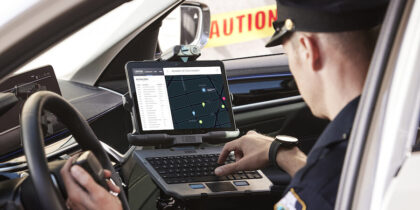Every two years the Center for Digital Government grades state governments on the robustness and vitality of their technology portfolios, singling out those that show a commitment to digital excellence.
No states received a D or F, and only eight states landed in the C range in the newly released 2016 Digital States Survey. While the highest scorers took a broad range of approaches to the business of digital government, a number of states near the top of the chart showed a distinct commitment to mobility.
Increased Mobility Efforts Across Top-Performing States
Utah took home an A, winning special notice from the judges for its mobility advancements. In December 2015, for example, its transportation department added GPS technology to more than 500 state vehicles, helping to optimize fleet management and serving the citizenry by connecting them with real-time data about how likely snowplows are to impact their travel plans.
Utah wasn’t the only state to get creative in its implementation of mobile technology. Virginia also landed an A for its overall technology efforts, which included mobility implementations from the Department of Health. The department’s web portal gives citizens an easy way to research health issues and connect with providers, while a mobile app bolsters this with location data, helping users to find nearby healthy restaurants and farmers’ markets.
West Virginia earned a solid B+ for its digital portfolio, in part by automating key functions of the Department of Motor Vehicles. By accessing a mobile-friendly, self-service platform, residents can use their mobile devices to request personalized plates, order driving records and pay driver’s license renewal fees.
California also earned a B+ partly on the strength of mobility, with judges noting that its California Mobile Gallery has increased the listings of mobile-centric sites by more than 25 percent in 2015.
Delaware drew a respectable B- thanks in part to a mobile-friendly time and attendance module designed to help staff track and manage their work hours. And although Rhode Island only achieved a C overall, it was commended for its website, which has been optimized for mobile users and outfitted with 150 online services for the state’s residents and businesses.
The judges looked at a broad range of factors in singling out top-performing digital states. While top-graded states showed their commitment to digital government through a variety of means, many of the strongest performers show a growing commitment to mobile implementations. As citizens move increasingly to the mobile space to conduct their personal and business affairs, the most proactive state governments are responding, bringing an ever-increasing range of services to mobile devices.
As technology becomes a bigger part of everyday life, governments are coming up with innovative solutions to empower digital citizens.







